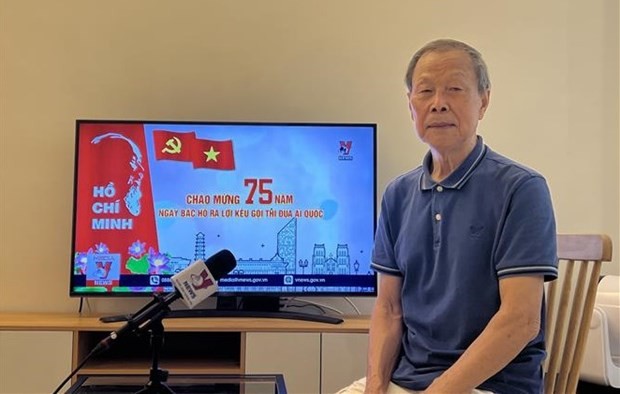
Patriotic emulation movement from perspective of Hong Kong scholar
Latest
 |
| Li Minghan, a scholar from Hong Kong (China) who has spent years studying Vietnam and President Ho Chi Minh. (Photo: VNA) |
Talking to the Vietnam News Agency's correspondents in Hong Kong, Li, who was also an advisor for the movie “Nguyen Ai Quoc in Hong Kong”, highlighted the significance of the movement, saying that President Ho launched the movement at a time Vietnam was facing both great external and internal challenges, with the aims of building and safeguarding the revolutionary government, resisting the invasion of French colonialism, combating internal reactionary forces, and improving the lives of the people.
Li said the two things about the patriotic emulation movement in Vietnam that impressed him the most were the name Nguyen Ai Quoc that President Ho used earlier, and the President's exemplary role.
According to the scholar, it is difficult to find a country with a movement having such strong and enduring vitality. He said the movement is an invaluable legacy that Uncle Ho has left for the country and the Vietnamese people, expressing the belief that this movement will continue to be maintained, promoted, and have a strong influence on future generations.
In 2000, Li was invited to be an advisor to the movie "Nguyen Ai Quoc in Hong Kong", which was highly appreciated by the Party and Government of Vietnam, as well as domestic and foreign audiences. The scholar also published a book on President Ho Chi Minh.
On June 11, 1948, President Ho Chi Minh issued an appeal for patriotic emulation. The appeal strongly encouraged the people to emulate in all aspects of social life, creating great strength for the whole Party, people, and army to overcome hardships and lead the Vietnamese revolution to the victory.
In the Appeal for Patriotic Emulation – a prominent political document which played the role of a platform and an action plan to direct the patriotic emulation movement nationwide and of entire people, President Ho Chi Minh determined the goal of patriotic emulation which was to eliminate hunger, illiteracy and aggressors.
The appeal deeply demonstrated Ho Chi Minh’s thoughts of patriotism, of people, and of unity – democracy – creativity as well as his strong belief in the people’s role and strength.

















